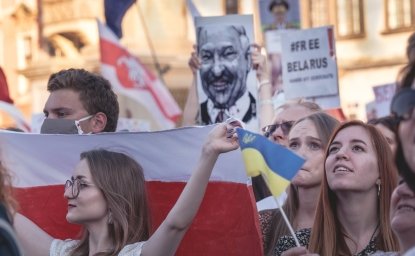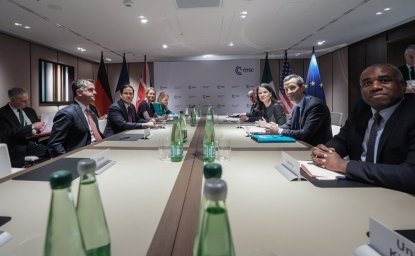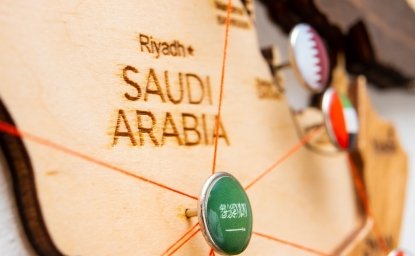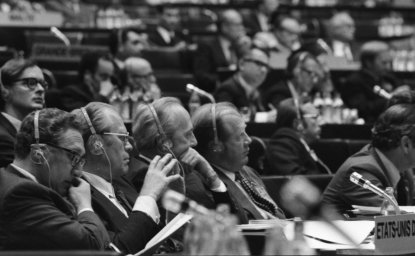Petrostate: Putin, Power, and the New Russia


"It is understandable why the Russian people regard Vladimir Putin as their savior," said Marshall Goldman, Kathryn Wasserman Davis Professor of Russian Economics (Emeritus), Wellesley College, and senior scholar, Davis Center, Harvard University at a 2 June 2008 lecture at the Kennan Institute. Russia's economy had declined by 40 percent during the early part of the 1990s, and had suffered a financial collapse in 1998. Since Putin took power as prime minister in 1999 and as president in 2000, the Russian economy has grown every year since. Would Russia be any different if Putin had not come to power? The answer, Goldman contended, is that "Russia would be very different, but that rapid economic growth would still be there, Putin or no Putin."
In less than a decade, Russia has made a dramatic economic turnaround. Goldman noted that some believe that growth to be broadly based, and that Russia is now a normal economy. "It is," countered Goldman, "if you take Saudi Arabia as your metric, because in Russia's case, oil and gas constituted two-thirds of their export revenues in 2007." In addition, Goldman demonstrated that Russian petroleum production and GDP have risen and fallen together, if by different amounts, every year between 1992 and 2007. "That has nothing to do with Putin. Russia is indeed a petrostate and is very closely tied to the fate of energy," stressed Goldman.
Goldman traced the consequences and possible causes of oil production declines in Russia in the late 1980s and early 1990s. During the later years of the Soviet Union, falling oil prices, possibly caused by U.S. exhortations of Saudi Arabia to increase oil production, diminished the Soviet capacity to finance its economy and empire. Goldman cautioned that it is difficult to show direct correlation to increased Saudi production and falling prices. Years later, during privatization in the 1990s, a new group of oligarchs, unfamiliar with the industry and disinclined to invest, were suddenly in the position of controlling Russia's oil companies. With declining production and low prices for oil, the Russian economy went into steep decline.
Increases in Russian oil production, and with it Russia's economic recovery, coincided with rising oil prices beginning in March, 1999. Owners of oil companies decided that they could make more money from increasing production from their oil fields than by stripping assets. This recovery was well underway when Putin was appointed Prime Minister in August, 1999, Goldman commented.
Putin's major influence on the Russian economy would come through his belief in the importance of "national champions." Goldman noted that Putin wrote a doctoral thesis while working for the governor of St. Petersburg in 1997 in which he advocated that Russia should form national champions by renationalizing or otherwise exerting control over Russia's natural resources, and then use those resources to compete globally.
While Putin followed the advice of economic advisers in implementing reforms such as a 13 percent flat tax and creating a stabilization fund to lessen inflationary pressure, Putin's main contribution was the idea of national champions and the renationalization of energy assets. Once in office, according to Goldman, Putin "immediately begins to purge these companies that are being run for the benefit of the owners." These owners included the new class of oligarchs, such as Boris Berezovsky and Mikhail Khodorkovsky, and Soviet-era nomenklatura managers, such as Gazprom's Viktor Chernomyrdin and Rem Vyakhiev. Putin replaced these owners with friends and former colleagues who worked with him in St. Petersburg and in the security services. As a result, Goldman noted, Russian state control over energy assets rose from 10 percent in 2000 to close to 50 percent in 2007.
Another unique aspect of the Russian system that emerged under Putin is the practice of senior government officials controlling major Russian companies, Goldman observed. Russia's new president, Dmitri Medvedev, has inherited this structure of people in powerful government jobs who owe their status, wealth, and political power to Putin. "It was easy to get rid of the earlier oligarchs," said Goldman, "because when Putin got rid of them they were not widely approved of by the public. It is going to be harder to get rid of these people."
Goldman also noted the challenge Russia's dominant position as an energy supplier poses to the West, particularly the European Union. Over 40 percent of German natural gas comes from Russia, and that supply is controlled from Gazprom's headquarters in Moscow, Goldman cautioned. Since gas is more strategically important than oil because of the difficulty in replacing supply, he continued, Europeans are becoming wary of over-reliance on Russia for energy.
In 1998, Russia was bankrupt; it now has the world's third largest financial reserves. With growth rates of 7 to 8 percent per year since 1999, its GDP has nearly doubled. It currency has appreciated in value 20 percent, and its national champion, Gazprom, is now the second largest company in the world after ExxonMobil. In this remarkable turnaround, "Putin made a difference," Goldman repeated, "but oil and gas made an even more important difference."


The Kennan Institute is the premier US center for advanced research on Eurasia and the oldest and largest regional program at the Woodrow Wilson International Center for Scholars. The Kennan Institute is committed to improving American understanding of Russia, Ukraine, Central Asia, the South Caucasus, and the surrounding region through research and exchange. Read more




